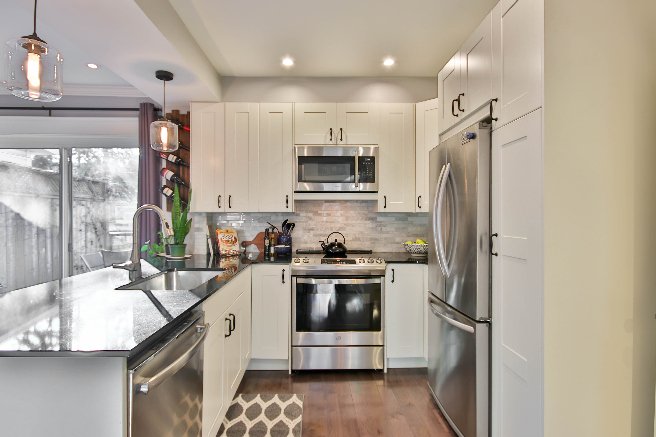Plumbing for Appliances: Essential Tips and Tricks
Plumbing is an integral part of our everyday life, yet it is often overlooked until a problem arises. This is particularly true when it comes to the plumbing of our home appliances. Without functional plumbing, our washing machines, dishwashers, and refrigerators would cease to operate effectively. But with a bit of knowledge, we can not only solve some common plumbing problems but also prevent many from happening in the first place. This blog post aims to provide an understanding of how plumbing works for various home appliances and share some essential maintenance tips to keep them running smoothly. Whether you're a homeowner, a renter, or someone who loves the nitty-gritty of home maintenance, this guide can serve as a handy resource.
Understanding the Basics of Plumbing in Home Appliances
Home appliances like washing machines, dishwashers, and refrigerators significantly rely on effective plumbing for their operation. A typical plumbing system for these appliances includes a network of pipes that supply clean water and a drain system that removes wastewater. Understanding this basic operation can help you troubleshoot common issues and perform simple maintenance tasks. For instance, regular inspection of pipes for leaks or clogs can prevent major water damage and extend the life of your appliances. Moreover, knowing when to call a professional plumber can save you time, money, and the hassle of dealing with complex plumbing problems.
Appliance-Specific Plumbing
Dishwashers
Dishwashers are one of the most water-intensive appliances in a home, making their plumbing components crucial for efficient operation. Water supply lines and drain hoses should be checked regularly for leaks or blockages. When installing a dishwasher, ensure the drain hose is looped high against the underside of the countertop to prevent wastewater from flowing back into the machine. This setup is known as an air gap, which is essential in preventing cross-contamination between your clean water supply and wastewater.
Washing Machines
Washing machines require both a water supply and a drain system. The supply hoses, typically marked as 'hot' and 'cold,' feed water into the machine, while the drain hose removes dirty water after each wash cycle. These hoses are susceptible to wear and tear, so it's important to inspect them periodically for any signs of leakage or damage. Ideally, washing machine hoses should be replaced every three to five years as a preventative measure. Also, remember to keep the washing machine at least four inches away from the wall to prevent hose kinking and damage.
Refrigerators
Today's refrigerators often come with built-in water dispensers and ice makers, which means they also need to be connected to your home's water supply. The water line to the refrigerator should be inspected regularly for leaks, as even a small leak can cause substantial damage over time. Additionally, the drain pan, located at the bottom of the refrigerator, should be checked and cleaned annually. This pan collects condensation from the refrigerator and allows it to evaporate. If the drain pan becomes clogged or damaged, it could lead to water leakage and potential damage to your kitchen floor.
Maintaining Your Appliance Plumbing
Regular maintenance of your appliance's plumbing not only prolongs its lifespan but also ensures efficient operation. One important tip is to never overload your washing machine or dishwasher as this could put undue pressure on the plumbing system. Instead, run smaller, more frequent loads. Also, periodically clean the filters of all appliances listed above to prevent blockages. Lastly, don't ignore minor plumbing issues - a small leak or drain problem can quickly escalate into a costly repair if not addressed promptly.
Troubleshooting Common Issues
Dealing with common appliance plumbing issues doesn't always require a professional – sometimes, a basic understanding and a little elbow grease can do the trick. For instance, if your dishwasher isn't draining, check for blockages in the filter and drain hose before calling a plumber. Similarly, a washing machine that's leaking water could simply need its hoses tightened, or replaced if they're worn out. A refrigerator not dispensing water may be due to a frozen or clogged water line, which can usually be fixed by defrosting the fridge and cleaning the line. However, always remember that if a plumbing issue persists after your initial troubleshooting, it's best to consult with a professional to prevent further damage to your appliances.
When to Call a Professional Plumber
Recognizing when to call a professional plumber can save you from costly repairs and unnecessary frustration. If you notice persistent leaks, frequent clogs, or drastic changes in water pressure, these could be signs of a larger plumbing issue that requires expert attention. Similarly, if your appliance is underperforming and basic troubleshooting hasn't resolved the issue, it may be time to call in the professionals. Unusual sounds or smells coming from your appliance could also indicate a plumbing problem. Lastly, if you're ever in doubt about a plumbing issue or if the problem seems too complex to handle on your own, it's always safer to consult with a professional plumber.
In conclusion, understanding the basics of how plumbing works in your home appliances can save you a lot of trouble and unnecessary expenses. Regular maintenance, such as checking for leaks, and blockages, and ensuring proper installation, can significantly extend the lifespan of your appliances and improve their efficiency. Moreover, knowing when to call a professional can help prevent minor issues from escalating into serious problems. By following the tips and best practices discussed in this article, you can ensure your appliances function optimally, making your home more comfortable and hassle-free. Remember, a well-maintained home is a happy home!


